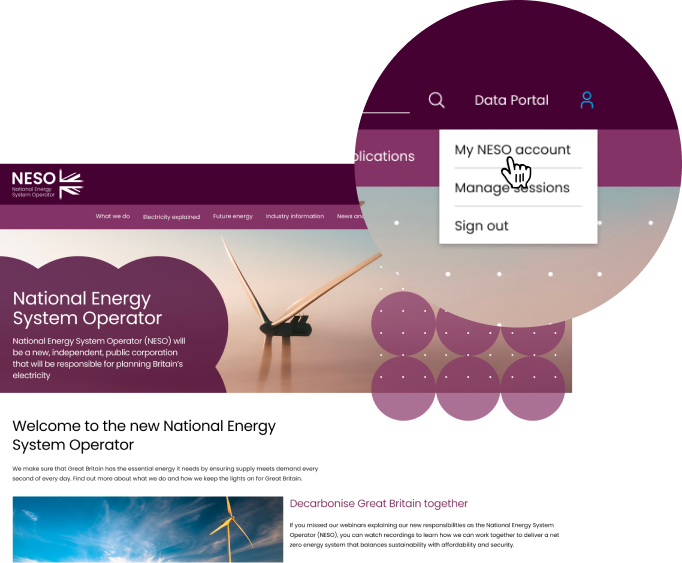Seven priorities for a green recovery
Fintan Slye, Director of National Grid ESO, outlines policy areas that are crucial for GB’s green recovery plan after COVID-19.
The COVID-19 pandemic is having a huge impact on business and society alike, the UK economy and others globally have been hit hard by the lockdown, with reports that the UK economy shrunk by a record 20% in April. During this time, reliable electricity supply has taken on a heightened importance. National Grid ESO sits at the heart of Britain’s electricity system ensuring people and businesses, wherever they are, have the electricity they need at the flick of a switch.
Through the lockdown our focus has been on keeping our people safe and the lights on. We have reprioritised our activities to deal with the challenges of operating a system with low demand and a high proportion of renewable power.
But as well as day to day operation, delivering an electricity system that contributes to the UK meeting its net zero commitments by 2050 is central to our mission. We play a central role within the industry, looking at what the future may bring and how the market needs to adapt to deliver a greener, more sustainable future.
"it's therefore crucial that Net Zero is hard-wired into any recovery plans as we collectively look to reset and restart the economy"
Our ambition is to be able to operate the GB electricity system carbon free in just five years’ time. We’re making great progress, in recent weeks, the grid was the greenest it’s ever been (a record low carbon intensity), but there’s more work to do, and as we come to terms with the impact of COVID-19 and look to the future, it is therefore crucial that Net Zero is hard-wired into any recovery plans as we collectively look to reset and restart the economy.
Any post-COVID-19 investment package should be targeted to have the dual effect of stimulating the economy, focused where possible in the areas of society most affected, while also accelerating the UK along the path to Net Zero. The list below represents a real opportunity to make a difference on both these dimensions.
-
Energy Efficiency of housing – Currently only 10% of houses have an EPC A/B rating, in order to get to Net Zero at least 50% of houses (14million) need to be A/B rated by 2050. Therefore, a national scheme that accelerates the deployment of energy efficiency in our new and existing building stock is essential to translate the current Government aspiration of all properties EPC Band C or above by 2035 in to reality.
-
New large infrastructure is critical to meet net zero: Hydrogen, CCUS are critical technologies for reaching net zero, industrial scale demonstration projects are needed this decade and a policy and regulatory framework is essential to move forward quickly. Offshore wind presents a significant climate and economic opportunity for the UK. Integrating offshore networks in the North Sea is essential to harness this resource efficiently. A delivery model that supports coordination and anticipatory investment with appropriate regulatory and consenting regimes is needed.
-
Enabling Electric Vehicles – Electric vehicles help to decarbonise transport and electricity supply. We need 12m on our roads by 2030 and 38m by 2050, if we are to bring road transport emissions to zero by 2050. To accelerate the switch to electric vehicles a robust, interoperable and smart charging infrastructure is needed alongside unlocking investment in electricity networks to provide the backbone. The recommendations of the EV Energy Taskforce need to be delivered on.
-
Digital and Data – The energy system of the future will need to be smart and highly integrated, by 2050 trillions of pieces of data will be required to run the energy system. Smart technology and open data are essential for market access for local and community renewables plus an interactive demand side through electric vehicles and energy storage – enabling them to participate in local and national markets for energy and flexibility. The recommendations of the Energy Data Taskforce provide a clear roadmap and should be progressed.
-
People and training – 400,000 jobs will be needed to support Net Zero with 100,000 needed in the next decade, as outlined in a report1 commissioned by our parent company, National Grid. To build a clean energy work force training and reskilling for the Net Zero roles should be prioritised.
-
Innovation and R&D – The clean energy transition represents an economic opportunity for the UK setting the UK up for long term success. Innovation funding should be targeted at low carbon technologies and the integration of them into our energy system.
-
Community engagement – The energy transition will bring forward significant change to our daily lives and all aspects of society will be impacted. In addition, new systems and infrastructure will need to be developed and we must work closely with communities to ensure local and regional considerations are factored into any development plans.
These recommendations aren’t a wish list or set of demands, but suggested areas that all stakeholders, including government, could focus on to ensure we build back an inclusive, stronger and more resilient UK economy. We will work constructively with all parties on these issues, keeping the lights on and helping to deliver a safe and secure electricity system that works for all.
